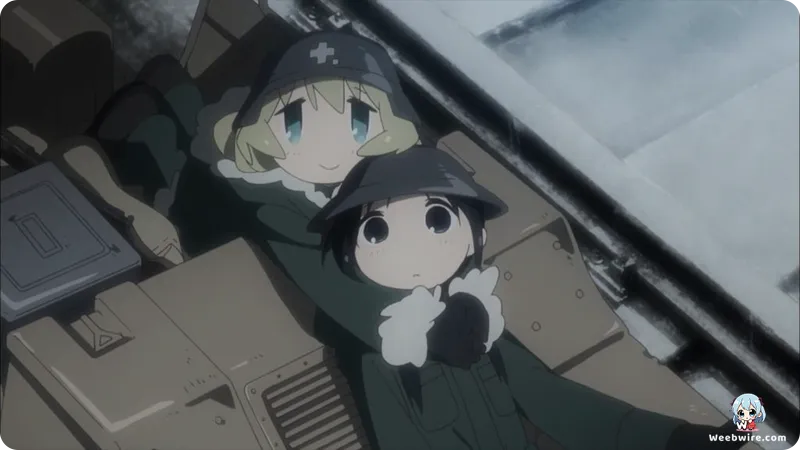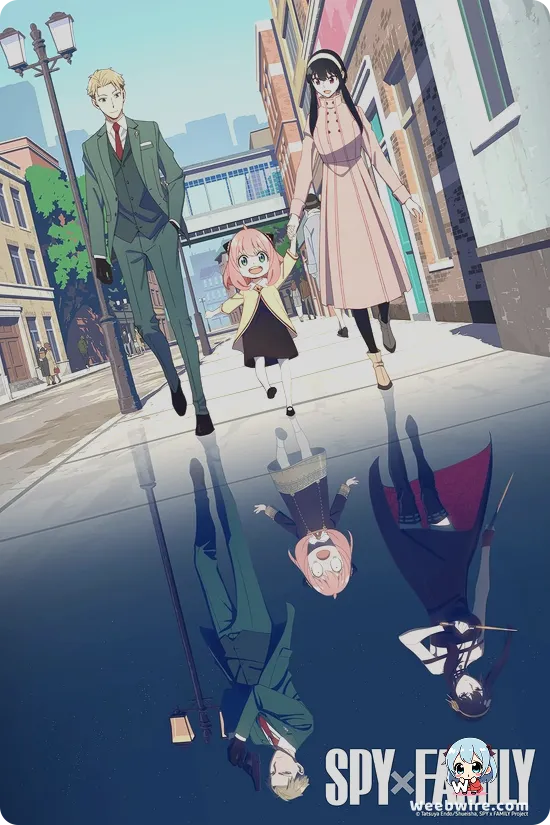Girls' Last Tour: Unraveling the Unique Elements That Define a Cult Classic

In the vast landscape of anime, Girls' Last Tour, the acclaimed 2017 adaptation by studio WHITE FOX, carves a distinct niche. Far from a conventional post-apocalyptic narrative, this series captivates with its contemplative rhythm, minimalist aesthetic, and profound philosophical undercurrents, seamlessly interwoven into a deceptively simple 'slice of life' framework. Despite its desolate setting, the anime stands as a quiet ode to existence, finding beauty and small joys amidst overwhelming ruin, cementing its status as a cult classic.
The Kettenkrad: A Character in Itself
A pivotal and instantly recognizable element of protagonists Chito and Yuuri's odyssey is their unique mode of transport: the Kettenkrad. This isn't merely a whimsical design; it's directly inspired by the real-world Sd.Kfz. 2 Kettenkrad, a versatile half-track motorcycle from World War II. The anime meticulously depicts its mechanics, grounding their fantastical journey in a compelling layer of realism and elevating the vehicle to an almost character-like presence.

Masterful Atmospheric Storytelling Through Sound
Girls' Last Tour further distinguishes itself through masterful atmospheric storytelling, heavily reliant on unique sound design. Eschewing constant dialogue or bustling soundtracks, the series embraces silence. The soundscape is deliberately sparse, punctuated only by the Kettenkrad's creak, gentle rain, or subtle daily sounds, amplifying isolation and vastness. This auditory minimalism draws viewers into quiet introspection, making rare musical cues profoundly impactful and conveying the anime's melancholic yet peaceful essence.
Chibi Charm Meets Existential Depth
A striking dichotomy defines the series: the stark contrast between its endearing, almost chibi-like character designs and the deeply existential themes it explores. Manga artist Tsukumizu's distinctive, childlike art style, faithfully translated by studio WHITE FOX, imbues Chito and Yuuri with an innocent charm. Yet, beneath this facade, the narrative fearlessly grapples with humanity's decline and the meaning of life in a desolate world. This powerful visual juxtaposition heightens the poignancy of their philosophical ponderings, preventing the series from becoming overly bleak and instead infusing it with a unique blend of charm and profound reflection. Tsukumizu's singular creative vision, characterized by minimalist backgrounds and expressive characters, was perfectly adapted, ensuring the manga's visual and thematic integrity from page to screen.
Subverting the Post-Apocalyptic Genre
The series masterfully subverts typical post-apocalyptic narratives by embracing the 'slice of life' genre. Instead of grand quests or survival horrors, it centers on the mundane: cooking meager rations, reading old books, exploring ruins, and sharing quiet moments. Their journey isn't about a destination, but the simple act of living and experiencing. This focus on the ordinary highlights how, even in ultimate desolation, innate human desires for connection, knowledge, and simple comforts persist, affirming that profound meaning can be found in the smallest moments of existence. Even the depiction of food, often simple and sparse, carries significant weight, serving as comfort, ritual, and a vital link to humanity, emphasizing their bond and providing pockets of quiet joy.
A Timeless Message of Hope
Ultimately, Girls' Last Tour is an unforgettable anime that invites viewers to contemplate profound questions without offering easy answers. Its unparalleled blend of philosophical depth, minimalist storytelling, and charming characters, coupled with its ability to evoke calm and wonder in a world seemingly devoid of hope, stands as a testament to its masterful execution and timeless message: that even in vast emptiness, profound beauty resides in the shared experience of being alive.
Credits
Girls' Last Tour
Author
Tsukumizu
Cover Art
Tsukumizu
Studio
WHITE FOX
Publisher
Shinchosha
Producers





